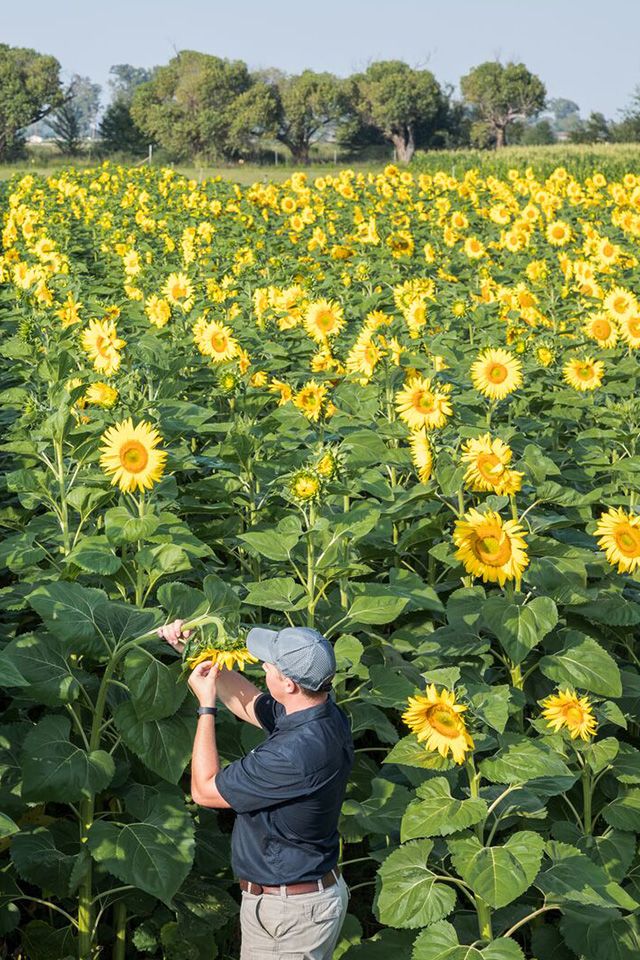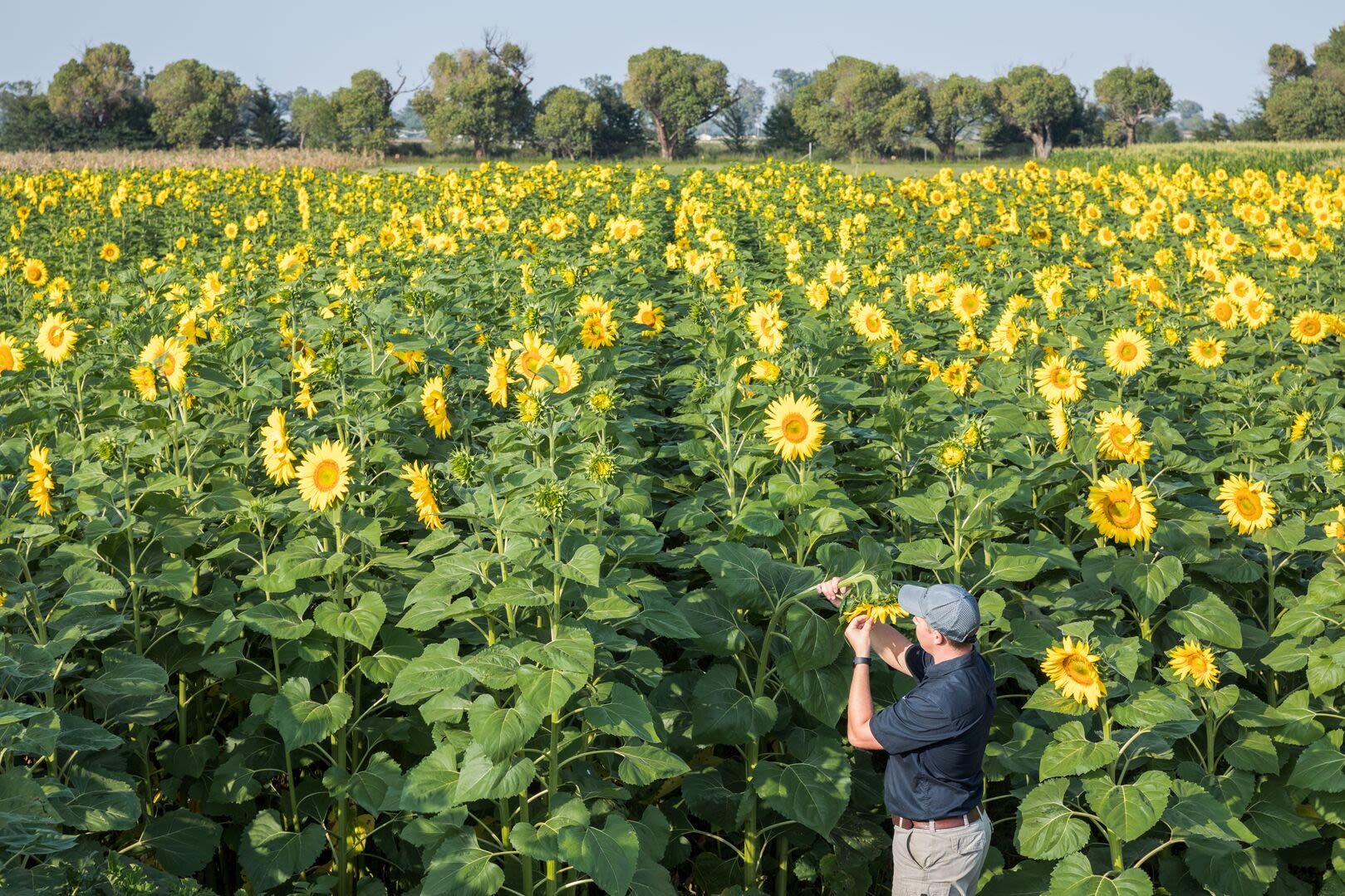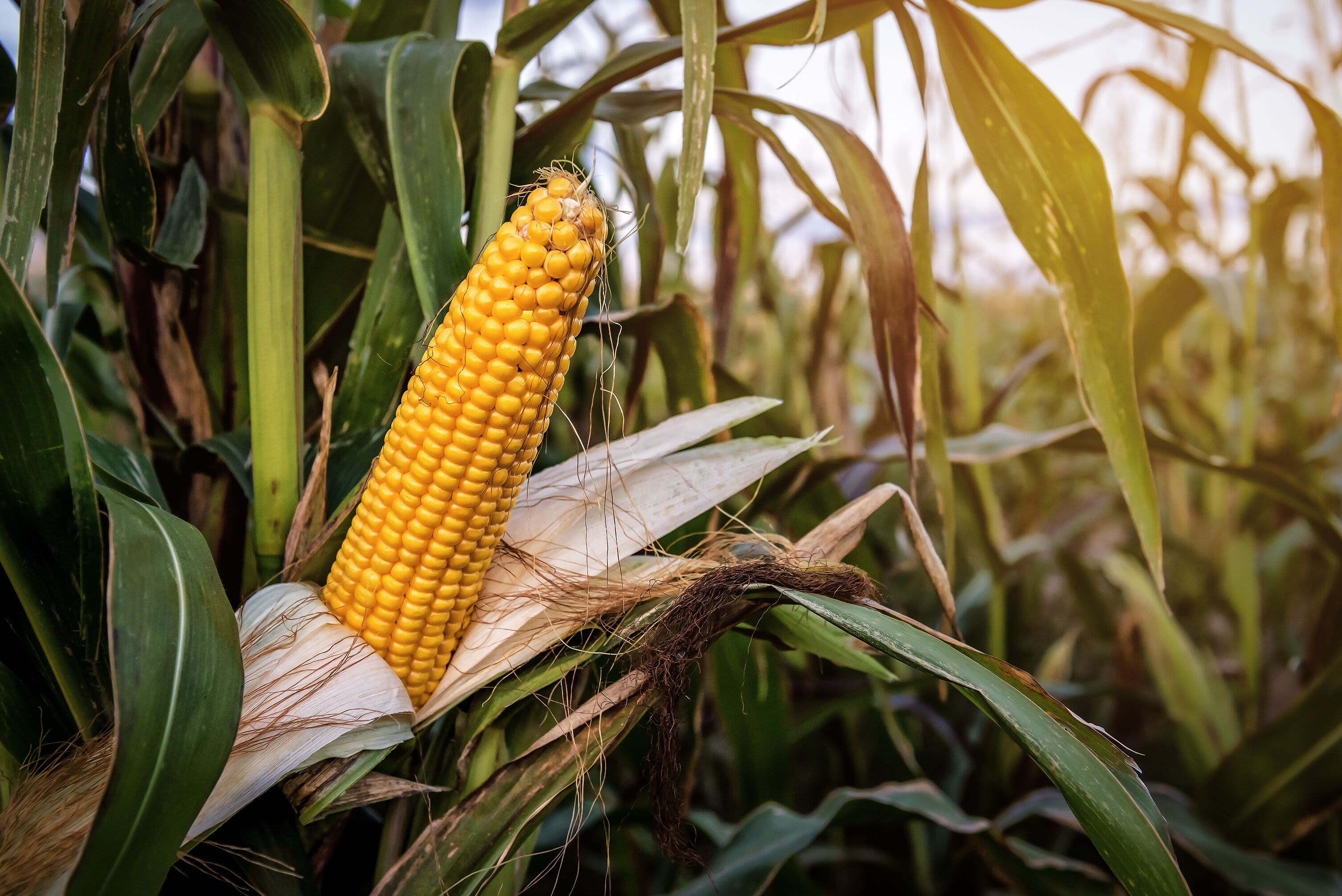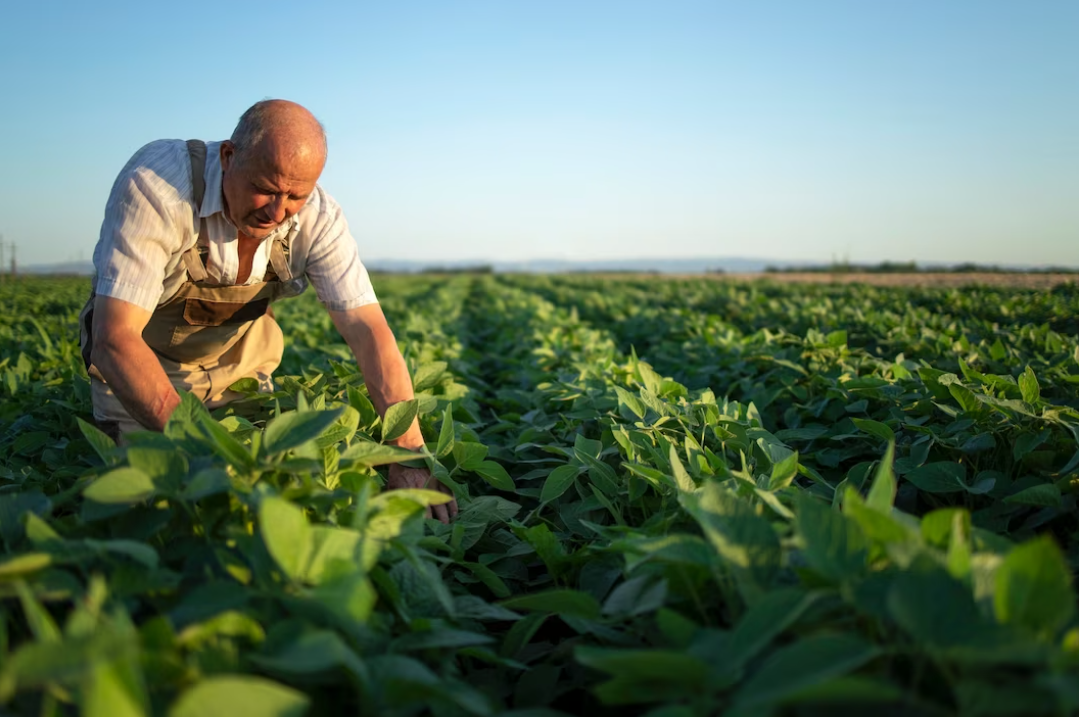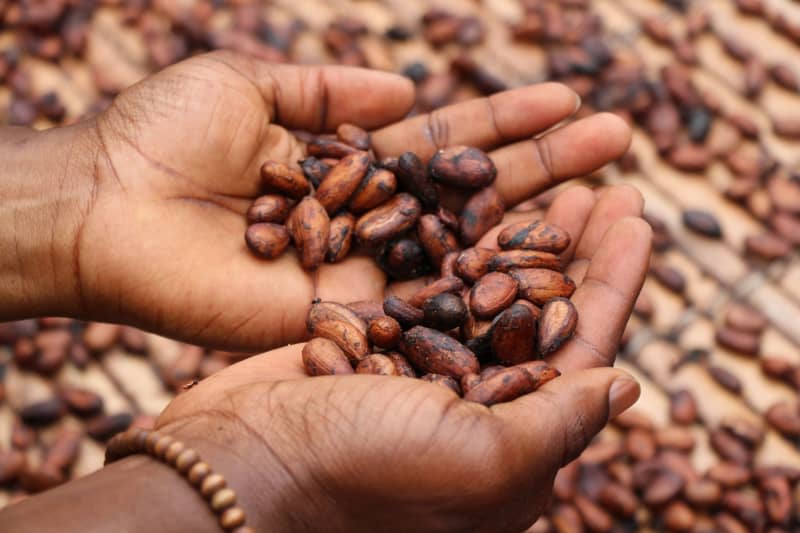Sunflowers: giving farmers back control

With their bright yellow heads bobbing in the breeze, sunflowers are one of nature’s triumphs. But, in the commercial market, growers face many challenges, and chief among them is weed control.
When it comes to sunflower cultivation, weeds are a big deal. It is estimated that virulent weed infestation can reduce sunflower yield by more than 58%, partly because of the slow growth of sunflowers in their initial stages and also due to a lower planting density than many other row crops.
But growers are limited in the fight against these intruders because few targeted herbicides have been developed and not all hybrid varieties can tolerate them.
Now an advanced herbicide-tolerant crop system is helping farmers across Europe to tackle the issue by delivering increased flexibility and productivity. While it’s still early days for Syngenta’s A.I.R.™ , this next level trait technology is proving to be a hit with growers.
“For me, the A.I.R. technology is a kind of insurance,” says Fabrice Comin, manager at Rominsem, a large crop production company in Romania. “If you have a weed problem in a field and tribenuron does not work, you can use imazamox. It’s an added security.”
With their bright yellow heads bobbing in the breeze, sunflowers are one of nature’s triumphs. But, in the commercial market, growers face many challenges, and chief among them is weed control.
When it comes to sunflower cultivation, weeds are a big deal. It is estimated that virulent weed infestation can reduce sunflower yield by more than 58%, partly because of the slow growth of sunflowers in their initial stages and also due to a lower planting density than many other row crops.
But growers are limited in the fight against these intruders because few targeted herbicides have been developed and not all hybrid varieties can tolerate them.
Now an advanced herbicide-tolerant crop system is helping farmers across Europe to tackle the issue by delivering increased flexibility and productivity. While it’s still early days for Syngenta’s A.I.R.™, this next level trait technology is proving to be a hit with growers.
“For me, the A.I.R. technology is a kind of insurance,” says Fabrice Comin, manager at Rominsem, a large crop production company in Romania. “If you have a weed problem in a field and tribenuron does not work, you can use imazamox. It’s an added security.”
What’s it all about?
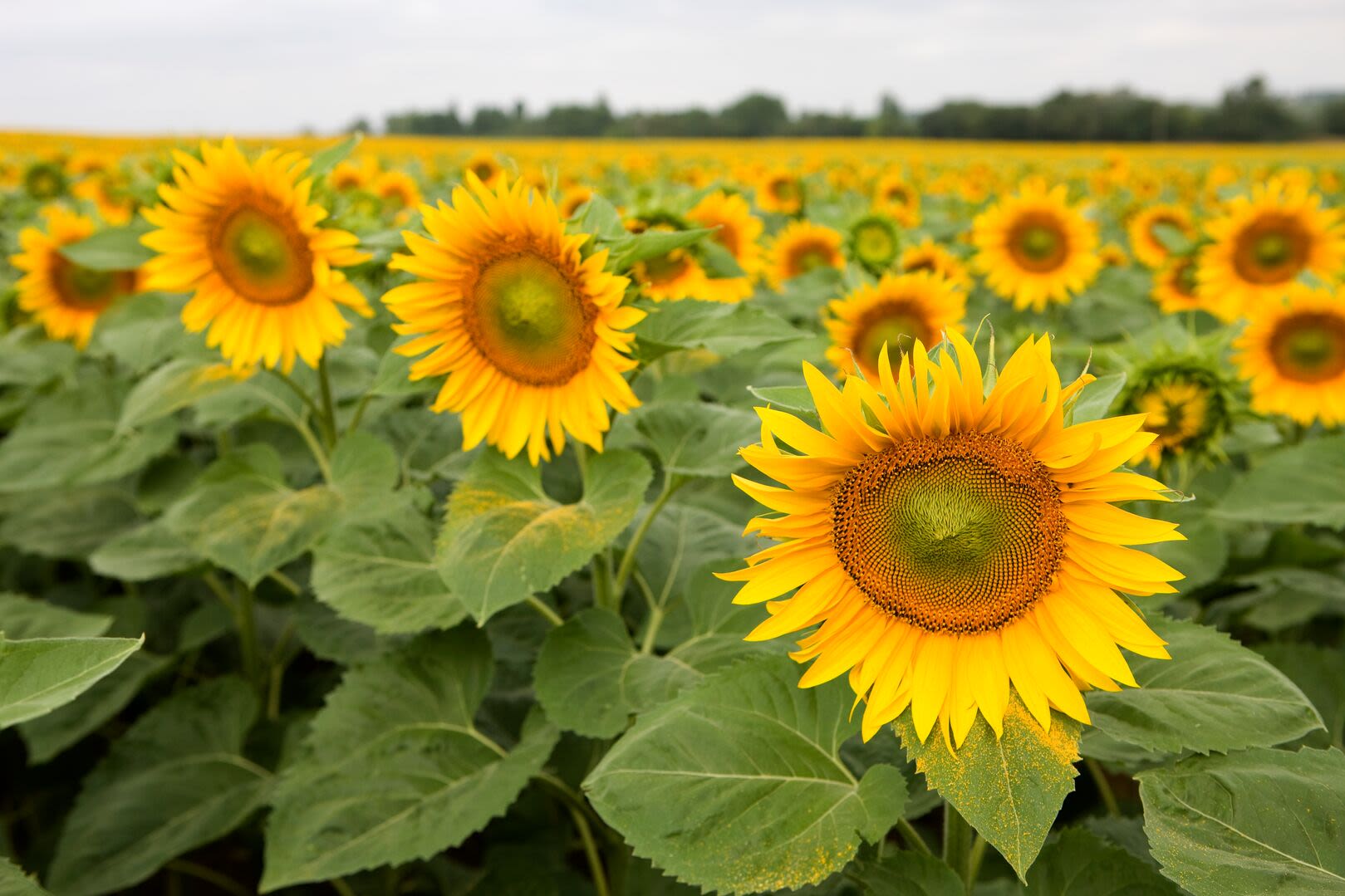
First unveiled in 2022, with an official launch in Bucharest in November 2023, A.I.R. technology aims to deal with a key problem in a sustainable and innovative way.
As a global leader in sunflower seeds, Syngenta worked on a trait from a wild population of sunflowers, breeding it into elite lines to produce high-performing commercial hybrids. The result provides robust tolerance to both imazamox and tribenuron-methyl-based A.I.R. qualified herbicides, meaning that growers can be confident that their sunflowers will not be adversely affected by multiple herbicides.
Daniela Răduică, Seeds Marketing Head, Black Sea, says that growing sunflowers can be complex but, with the discovery of A.I.R., “we saw the opportunity to develop something really special and, at the same time, bring simplicity”.
She continues: “A.I.R. allows us to focus on what matters most to the farmer, namely yield and agronomic traits. We can achieve faster progress in genetics whose main beneficiary will ultimately be the farmer.”


From the laboratory to the field

Romania was part of the first wave of countries to launch the new technology with large-scale trials in 2022 and 2023. By 2024, it had become widely available to growers, including Comin at Rominsem.
When Syngenta talks to him, he is in the midst of harvesting in Mircea Vodă village, Brăila County. Speaking from a field full of SY Futura AR, a hybrid from the first A.I.R. generation, Comin describes his experience.
Syngenta’s lulian Chirtop speaks to Fabrice Comin, Manager at Rominsem about the impact and results of A.I.R.™ technology.
“It was in 2022 [that] I put it in a new field that I had taken over, without knowing how it was regarding weed infestation. I liked the idea that we have two herbicide solutions. We treated one part with tribenuron, and one part with imazamox. It’s a good solution for when we have many weed problems.
“In 2023, we planted 35 hectares of SY Futura AR in a field where we didn’t quite know the weeds spectrum. Until sunflowers emerged, we couldn’t see what weeds we had. Having A.I.R., we chose the herbicide according to the weeds found on the field. Back in 2023 we made the first pass with tribenuron and we have a good result.
“This year, in 2024, we have 70 hectares of SY Futura AR, on two fields. [Today] we are on a field where we used only tribenuron, and it’s quite clean. Because it’s been a dry year, we didn’t have much weed pressure, we managed to control the weeds only with tribenuron.”
Now that Comin has seen A.I.R. in action, he says that “it looks very good and it is quite vigorous”. Looking to the future, he plans to continue to use Syngenta varieties with A.I.R. technology, and he will also try the SY Corsica AR as well as increasing the cultivated area.
“Last year, we got 3,500 kilograms per hectare,” he says. “I was very satisfied. And we hope that this year, we will get similar results.”
Răduică reports that other growers who have employed A.I.R. have given positive feedback on the simplicity of the technology, its flexibility, resulting weed control improvements, and high yields.
Further afield…
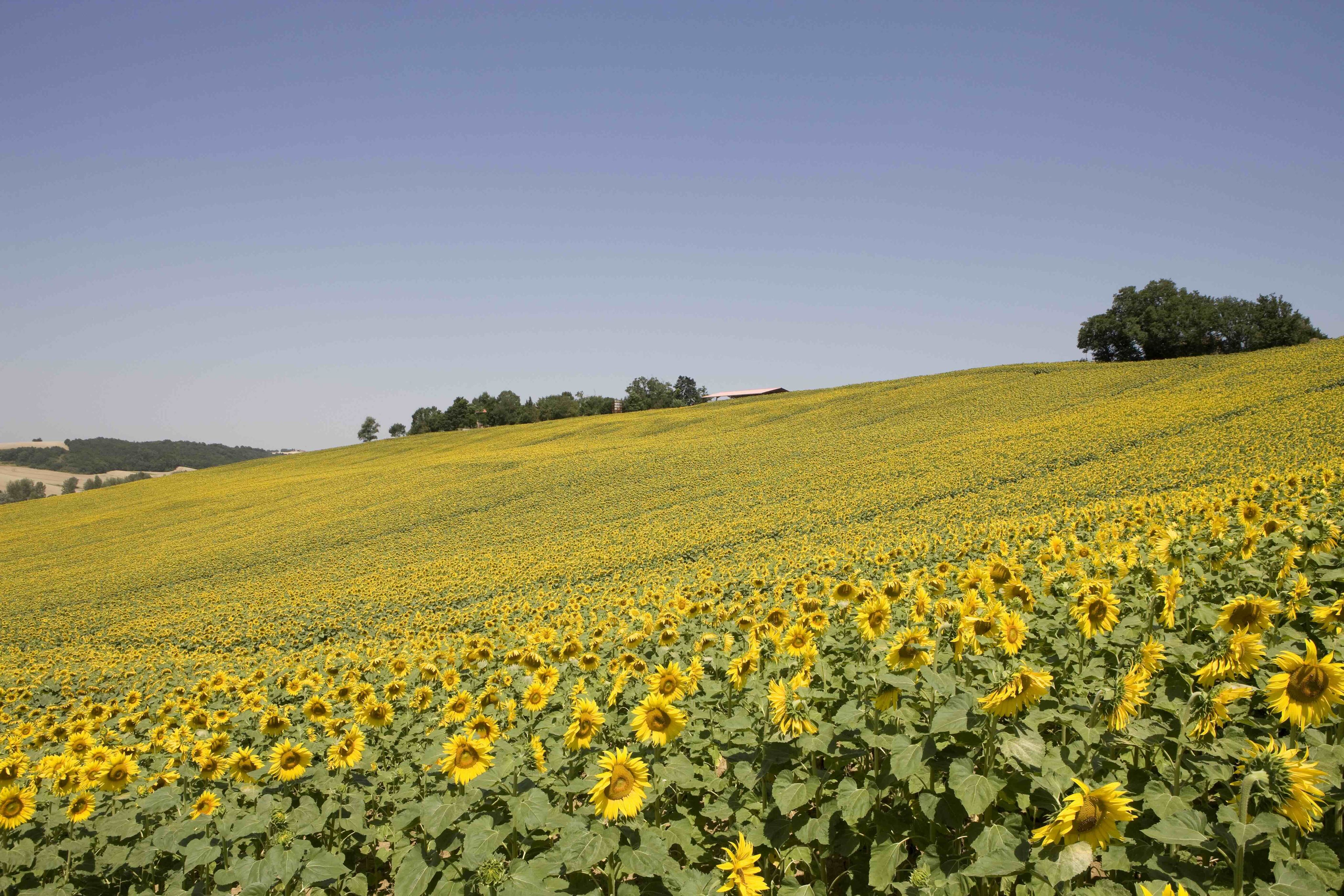
Over in Hungary, where Syngenta has the widest range of sunflower hybrids, the A.I.R. technology was launched to growers in the 2023/2024 season with 800 units of SY Corsica AR.
Dóra Ácsné Szekeres, Oil Crops Seed Marketing Manager, says that A.I.R. is important because it means that growers don’t have to decide on the herbicide at the time of hybrid selection. “It means that the farmer can wait for the weather and weed conditions to select the right herbicide.”
She adds: “This flexibility in the weed control together with the hybrid value improve the security and profitability of the sunflower production.”
Back in Romania, Comin is looking forward to a bountiful harvest after establishing 65,000 plants per hectare, spacing 50cm between rows to ensure more nutrition space for the plants so they develop better and cover the soil faster.
“I recommend all farmers to use A.I.R. technology because it offers flexibility in herbicide use and a kind of insurance for having clean soil.”
Farmer inspecting sunflower in field.
Farmer inspecting sunflower in field.
Over in Hungary, where Syngenta has the widest range of sunflower hybrids, the A.I.R. technology was launched to growers in the 2023/2024 season with 800 units of SY Corsica AR.
Dóra Ácsné Szekeres, Oil Crops Seed Marketing Manager, says that A.I.R. is important because it means that growers don’t have to decide on the herbicide at the time of hybrid selection. “It means that the farmer can wait for the weather and weed conditions to select the right herbicide.”
She adds: “This flexibility in the weed control together with the hybrid value improve the security and profitability of the sunflower production.”
Back in Romania, Comin is looking forward to a bountiful harvest after establishing 65,000 plants per hectare, spacing 50cm between rows to ensure more nutrition space for the plants so they develop better and cover the soil faster.
“I recommend all farmers to use A.I.R. technology because it offers flexibility in herbicide use and a kind of insurance for having clean soil.”
Farmer inspecting sunflower in field.
Farmer inspecting sunflower in field.



